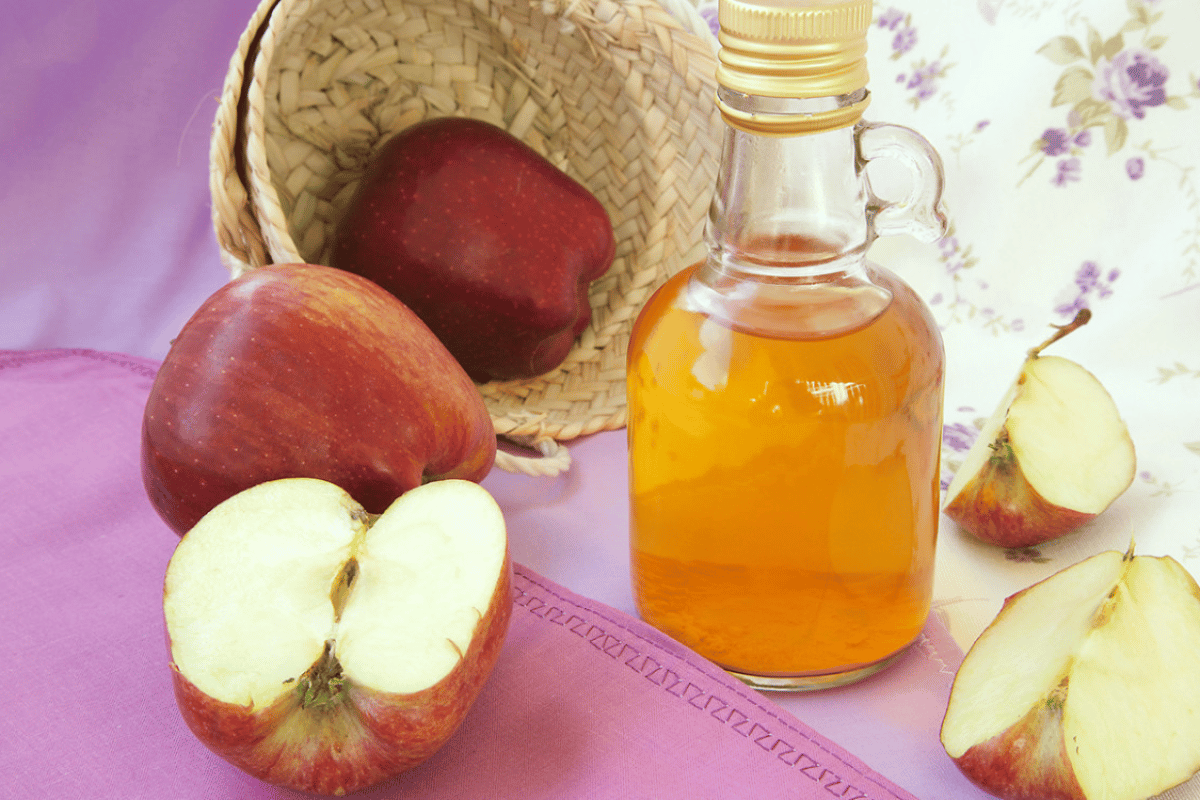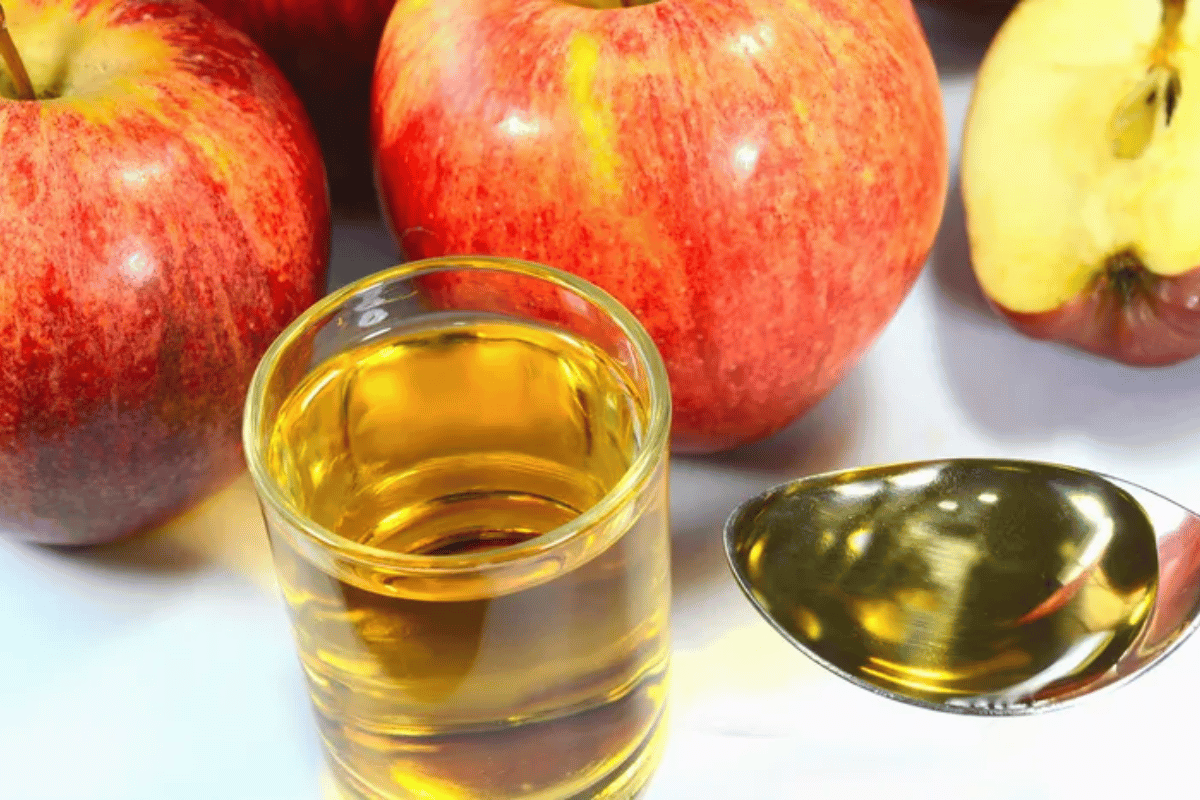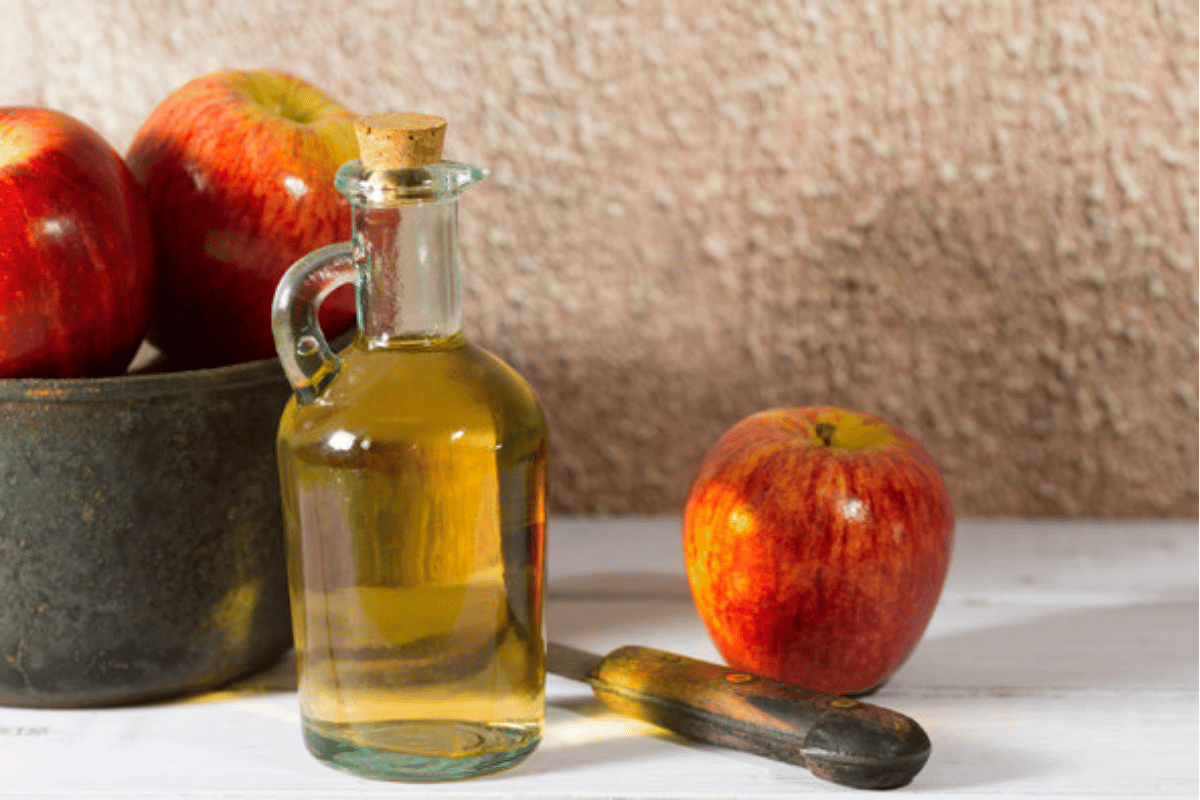In the competitive sports world, weight management is a constant challenge for athletes especially after competitions. Efforts to manage weight have become more innovative in 2024, one of them being apple cider vinegar (ACV). This product, which has always been known for its health benefits may now help athletes manage their weight.
Why do those who compete in sports need to lose pounds as fast as possible once they are through with competitions? The reason why athletes face unique post-competition weight management challenges is that there is an abrupt change from vigorous activity into normalcy thereby making it common for them to gain or shed off some kilos. But why should they keep their weights within certain limits? It’s because such limits are necessary for performance optimization and general well-being while at the same time ensuring long life span in their professions. In light of this situation, apple cider vinegar can be used as a supplement towards achieving these goals.
This write-up seeks to lay down facts and myths about apple cider vinegar vis-à-vis losing weight with particular emphasis on sports performance. While ACV has been said to work wonders in terms of helping people cut down on their weights, claims must be grounded on scientific findings rather than mere hype. What is the degree of effectiveness exhibited by this substance when it comes to managing weight? Does it truly assist athletes in keeping their weights after taking part in various games apart from competition? Such inquiries will form part our discussion where we intend backing up any information given herein using scientific research alongside experiences gained by different players.
Through analyzing how six players utilized apple cider vinegar during their routines following competitions, we shall assess practicality aspects associated with applying natural remedies among sportspersons. Each individual’s account will bring out ways through which ACV can be incorporated into diverse approaches geared towards managing body mass thereby providing comprehensive outlook regarding its pros and cons within such settings.

Athlete 1’s Plan: Mixing Apple Cider Vinegar with a Healthy Diet
Our first athlete is Emma, a professional swimmer who used apple cider vinegar (ACV) to help maintain her weight. She did this by incorporating it into a balanced diet along with an exercise routine. This approach was meant to be practical and show how one can separate fact from fiction when it comes to ACV and weight loss.
The way Emma eats while on ACV: Emma consumed lean proteins, whole grains, fruits, vegetables – everything necessary for proper nutrition in athletes like herself. In addition to this already packed meal plan she drank diluted tablespoons of ACV mixed with water every morning before breakfast as well as prior all other main meals throughout the day because according some people such steps could enable easier digestion through improved metabolism.
Differentiating Between Facts And Myths: Emma knew there were many false claims surrounding apple cider vinegars such ability to make you lose much fat within short period hence her method was influenced by what experts say about it. One of them being sports nutritionists who advised that even though this product has its own advantages when consumed alone will not result into burning fats or losing weight rapidly.Essentially what worked best for Emma is using ACV alongside with healthy eating habits rather than substituting them for any other nutritional practices which are proven good over time also.
Evaluating The Success Rate: After several months of experimenting with different types of diets combined with exercise regimens Emma discovered that incorporation of acv in her daily meals helped manage weight more effectively particularly during off peak training seasons where the intensity varied most times.Also she realized that digestion improved due increased level fullness after consuming food thereby controlling portions taken leading maintenance healthy body mass index.
Expert Opinion: According to Dr Lucas Grant who specializes in sports medicine “this approach represents rational use natural supplements like vinegar among athletes.” He adds,”It does not replace essential rules governing balanced diets but instead adds on them for better performance.” This statement implies that although helpful as an appetite suppressant or energy booster alone does not offer much benefits without physical activities and proper nutrition.Probably this quote from him sums up everything which was said earlier – “It’s through dieting well, exercising regularly living healthy.”
Emma’s story provides a realistic perspective on using ACV for weight management in sports. It highlights the importance of a balanced diet and the need to approach popular supplements like ACV with a critical understanding of their actual benefits and limitations.

Approach of Athlete 2: Apple Cider Vinegar for Boosted Metabolism
In this post, we explore the approach taken by our second athlete – Liam. As a professional marathon runner, he used apple cider vinegar (ACV) mainly because he believed it could help speed up his metabolism. What he did was that after every competition season, Liam would work towards optimizing his metabolic process during the off-peak training periods; ACV being one of those things that helped him do so.
How Liam Used ACV to Enhance His Metabolism: Understanding the demands of long-distance running on the body’s energy system, Liam introduced ACV into his daily routine with the aim of heightening his basal metabolic rate (BMR). He would drink a mix comprising water and some honey together with apple cider vinegar first thing every morning before eating anything. His choice was influenced by findings such as those which propose that acetic acid found in ACV might facilitate fat oxidation leading to increased metabolism.
Differentiating Between Myths and Realities: Liam didn’t fall prey to typical exaggerations about how much weight one can lose simply by consuming this liquid food supplement alone. He knew very well that there had to be some truth mixed with all these lies when it came to apples fermented into liquid form and their relationship with human health especially concerning weight loss. What he said was simple; yes – apple cider vinegar can help me burn more calories but no – drinking it won’t make my muscles bigger or give me better endurance if I don’t train hard enough while watching what I eat at the same time.
Impact Observation: During several months where he included AVC in his diet plan, Liam noticed that taking this natural remedy seemed associated with better appetite control and slight improvements in overall energy levels particularly during early morning workout sessions which tend to be tougher for most people including him too sometimes! However not attributing significant changes in terms of performance or physique solely to ACV, he believed that it worked well as an additional component within his entire nutritional programme.
Insights from Professionals: According to nutritionist Dr Emily Richardson; “Athletes like Liam often look for natural methods which can help them improve on their metabolic efficiency. Though apple cider vinegar may not work wonders but it does form part of a wider strategy that focuses more on nutrition and metabolic health. Nevertheless, we should be realistic about what we expect from these products.”
Liam’s example shows how athletes can incorporate supplements into their routine based on nature so that they work hand in hand with metabolism during low intensity training periods. This also points out the need for ensuring you strike a balance between using such supplements and adopting comprehensive approach towards your workout plan as well as dietary habits too – just like Liam did!
Athlete 3 and 4’s Techniques: Mixing Workouts with Cider Vinegar
For this particular case, we are going to look at what happened when apple cider vinegar (ACV) was integrated into the exercise regimens of Athletes 3 and 4 who are Maria and Jake respectively. These strategies show how adaptable ACV can be in supporting different training programs.
Maria’s Incorporation of ACV into High-Intensity Training: Maria is widely known for her intense high-intensity interval training (HIIT) sessions so it was no surprise that she began using ACV as part of her routine in a bid to potentially improve upon her workout outcomes. She put some ACV in her pre-workout smoothie because according to her, it could lower blood sugars which in turn would help during intense exercises where much energy is required by the muscles. For Maria this meant taking more proteins and carbohydrates alongside other necessary nutrients since they were vital for meeting up with such high-energy demands imposed on an individual undertaking HIITs.
Jake’s Use of ACV in Endurance Training: Unlike Maria who concentrated more on short bursts of energy output through HIITs, Jake engaged himself into long hours pedaling away on his bike which necessitated endurance building as well as recovery from these bouts hence adopting another method altogether. He mixed it with a post workout drink because he believed that apart from aiding faster muscle recuperation after long-duration cycling events like those attended by him; it would also help reduce post-exercise fatigue through speedy elimination of lactic acid buildup within one’s system. Antioxidants being highly recommended for individuals involved in such activities over prolonged periods formed part of his daily meals too while considering additional support tools like ACV for facilitating recovery processes among them.
Sorting Out The Truth From Myths: When dealing with apple cider vinegar and weight loss there are certain facts that need to be distinguished from fiction which both Maria and Jake were well aware of. These two athletes understood very clearly that ACV should only act as a supportive enhancer but not a substitute or stand alone for any part of their training hence they had to take into account all other aspects required for them achieve success in this area. They also knew how important it was to integrate such an item into a holistic plan involving exercise activities coupled with proper nutrition.
Expert Commentary: “I see many athletes like Maria and Jake using natural things during their training; however, these need to be taken as one part among many others,” says Derek Simmons , a fitness coach. “Apple cider vinegar may help muscle recovery or give you little energy but without using comprehensive diet plans along physical exercises then it cannot work effectively.”

Athlete 5’s use of apple cider vinegar (ACV) for recovery and weight management
Tom, who is known as athlete number five, gives an account which is different from others on how to use apple cider vinegar (or ACV) when it comes to recovery or losing weight. What he does is that he emphasizes the significance of rest in an athlete’s program; thus indicating where this element can fit into the overall performance equation.
ACV in Tom’s post-game recovery: After vigorous basketball matches or workouts, Tom would follow through with a recovery plan centered around ACV. He drank diluted apple cider vinegar mixed with lemon juice and water so as to replace lost electrolytes as well as facilitate muscle repair. He also felt that taking anti-inflammatory substances such as ACVS could help reduce pains emanating from muscles while quickening healing.
Matching ACV against Nutritional Needs: As a professional sportsperson whose body requires high calories amounts, Tom made sure that his meals were packed with nutrients necessary for building up tissues and replacing used energy fast. In addition to other foods rich in these elements such proteins healthy fats complex carbohydrates among others; he included ACV whenever coming up with a balanced diet plan. This way helped him keep fit during intense basketball seasons without losing mass.
Assessment about how good is Apple Cider Vinegar at promoting healing after exercises: According to what he said after using it on himself following games regularly , there were signs which indicated that indeed adding apple cider vinegar into his post-match rituals might have contributed to faster recuperation rates experienced by him besides general feeling of wellness too.. He noticed reduced muscular tiredness coupled with sustained levels of vitality throughout this period attributing some part success achieved.
Words from Specialists: Dr.Rachel Edwards who works as sports dietician commented saying that “Nowadays athletes are increasingly turning towards natural supplements for their bodies’ rejuvenation. Considering its possible anti-swelling effects, ACV can be a valuable component of any sportsperson’s rehabilitation regimen. Nevertheless, one should bear in mind that it ought to be integrated into a nutritionally balanced plan tailored to meet specific requirements imposed by different games.”
Tom’s journey indicates how one can use ACVS during recovery programs for increased muscle mass regeneration weight control. It also brings out the need for wider dietary approaches and other methods which are part of restorative practices athletes specializing in professional sports should adopt based on unique demands they present with.
Case Study 6: Apple Cider Vinegar from a Holistic Standpoint
Our last case study involves Sofia who is a professional tennis player that adopted apple cider vinegar (ACV) in conjunction with a holistic lifestyle. For Sofia, this means using ACV for more than just her athletic performance or recovering after competitions – it’s part of her every day routine and overall health strategy.
How Soifa Uses ACV Daily: Each morning Soifa drinks warm water mixed with ACV and a little honey because she thinks it helps jumpstart her metabolism and aids in digestion. She also puts it in salad dressings or sometimes uses it when cooking because she likes the taste and thinks there may be some additional health benefits to doing so.
ACV Alongside Mindful Eating + Yoga: Being aware that mental well-being greatly affects sports performance levels, Soifa incorporates mindful eating practices together with regular yoga sessions into her ACV program; this helps keep her weight balanced, stress managed, focus heightened – all which are key aspects of being a tennis player.
Health for Life & Weight Control: Rather than seeing ACV as merely another fad diet pill used for losing weight rapidly then gaining back twice as much later on ,Soifa perceives it as an important part of maintaining good health throughout one’s life .According to her ,ACV has also assisted greatly when coupled with healthy eating habits alongside physical workouts thus enabling people like me (Soifa) to continue enjoying their desired weight especially during off-season training periods characterized by different levels intensity .
Expert Opinion: “Soifa’s approach typifies what many athletes now do around their bodies holistically,” says wellness coach Michael Johnson. Such natural products such as ACVs should be integrated into diets that treasure nutrition values mental soundness and physical fitness since they help in long term wellbeing improvement programs aimed at managing ones own mass according to him .
The concept behind Soifa’s use of ACV holistically represents an increasing pattern among sportsmen towards alternative methods beyond traditional training and recovery techniques. In other words, by incorporating ACV into a lifestyle centered on general health and well-being (which should be the case for all athletes), she illustrates how natural supplements can be utilized by athletes not only for immediate performance benefits but also for long term fitness.
Frequently Asked Questions (FAQs) – Myths and Truths about Apple Cider Vinegar and Weight Loss
This section presents frequently asked questions to provide more information on the myths and truths about apple cider vinegar and weight loss, especially in relation to sports performance and post-competition weight control.
Q1: Can athletes reduce bodyweight significantly by taking only apple cider vinegar?
A1: Athletes cannot lose much weight by merely ingesting apple cider vinegar. Digestion may be facilitated and metabolism increased; however, dieting, exercising, and other lifestyle modifications remain key components of any successful weight-loss endeavor.
Q2: Is it good for athletes to consume apple cider vinegar before workouts for enhanced performance?
A2: Some evidence suggests that drinking diluted ACV may help improve exercise performance directly; although this effect could be attributed to better digestion or energy levels among some individuals engaged in intense physical activities like sports competitions. Pre-workout nutrition should never be substituted with this supplement because it does not contain enough nutrients required by the body during such times.
Q3: Does ACV support muscle recovery after competitions?
A3: Tom, one of our case study subjects uses this product believing it aids his muscles recover faster due mainly perhaps because of anti-inflammatory properties associated with it. Nevertheless scientific backing for these claims is thin hence if employed at all should form part broader post event recuperation plan.
Q4: Are there any dangers linked with using apple cider vinegar as a weight management tool?
A4: Although generally safe when consumed in small quantities over time undiluted or excess intake can cause problems like stomach upsets throat burns tooth decay. In view of this athletes must talk to their doctors prior including acetic acid into their routines especially if they have existing medical conditions or take prescription drugs.
Q5: How can athletes use ACV in their diets while trying to manage their weights?
A5: It can be mixed with water and taken before meals, used as salad dressing or added during cooking. Nevertheless, it is important that one sees this product for what it really is – a supplement not replacement for proper nutrition within balanced diet structure.
Related Posts :
- En 5 Autumn Tips From Chrissy Metz Weight Loss Inspiration W99w
- En In 2024 Is Apple Good For Weight Loss Ohx8
- En Best Time To Take Apple Cider Vinegar Gummies For Weight Loss User Reviews Pnhc
- En Zion Williamsons Halloween 2024 Weight Loss Challenge Aiming To Lose 20 Pounds K4d5
- Revolutionize Your Weight Loss Journey With Gummies For Weight Loss Keto A Comprehensive Review And W6wx

